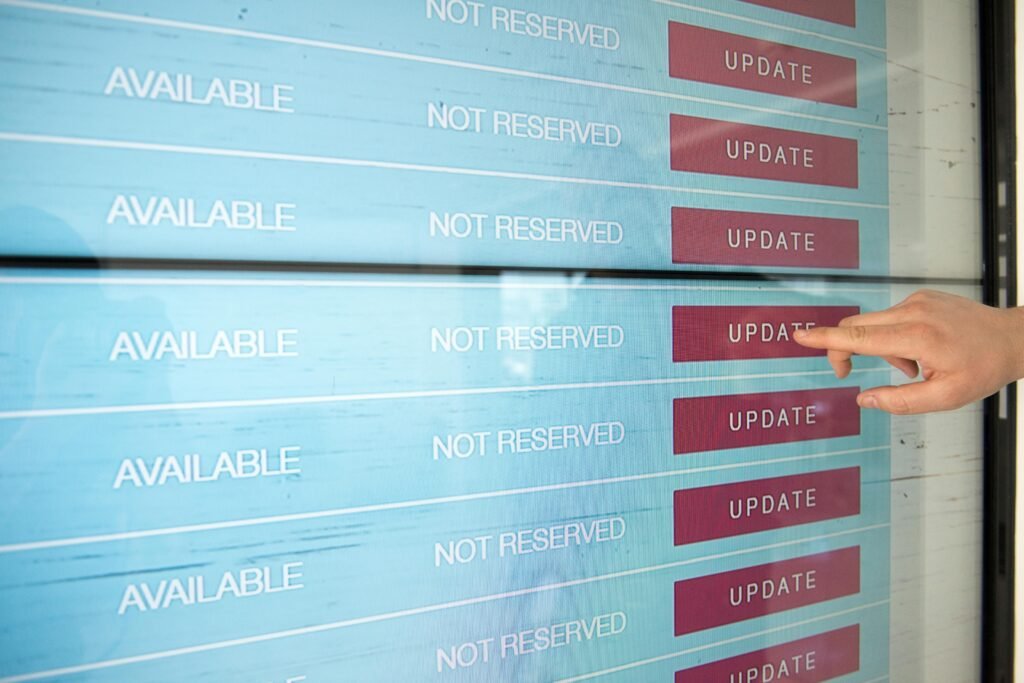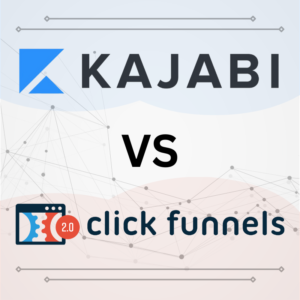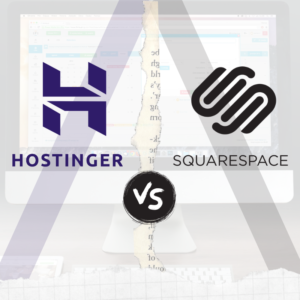When deciding between Opendoor vs Offerpad, it’s essential to understand how these two iBuyer platforms stack up in terms of pricing, convenience, and overall service. Both companies offer a faster, more streamlined alternative to the traditional home-selling process, but their differences in approach can significantly impact your selling experience. From the ease of use and flexibility in closing dates to fees, market availability, and customer support, this blog post will break down the key factors to help you determine which platform is the best fit for your needs. Whether you’re looking for a fast sale or more control over the process, understanding the nuances of Opendoor vs Offerpad is crucial for making an informed decision.
Table of Contents
Opendoor vs Offerpad: Ease of Use and Application Process
When comparing Opendoor vs Offerpad in terms of ease of use, both platforms strive to simplify the home-selling process for users, but there are some differences in their application process and user experience.
Opendoor
Opendoor makes it very easy for sellers to begin the process. All you need to do is visit their website or app and enter basic details about your property, such as the address and condition. Opendoor’s platform is user-friendly, guiding you step by step through the process. Once you submit your information, you’ll receive an initial offer, usually within 24 hours. There’s no obligation to accept the offer, and everything can be done online.
After the offer is provided, Opendoor schedules a home inspection. They handle all repairs and maintenance, adjusting the offer accordingly rather than requiring the homeowner to fix any issues upfront. The streamlined nature of this process means that sellers can get a quick, hassle-free estimate without a lot of back-and-forth.
Offerpad
Offerpad offers a similarly easy process but with a few added services. Like Opendoor, you start by entering your property details online to receive an initial offer, which is usually provided within 24 hours. Offerpad’s platform is also straightforward, making it easy for sellers to follow.
One unique feature of Offerpad is its Home Trade-In Program, which allows sellers to trade their existing home and buy a new one in one seamless transaction. Offerpad also provides a free local moving service, which can be especially convenient for sellers looking for a one-stop solution. These extras may appeal to users who want a little more support during the home-selling process.
Opendoor vs Offerpad: Offer Price and Valuation Process
When comparing Opendoor vs Offerpad in terms of offer price and valuation process, both companies use technology to determine home values but have slightly different approaches.
Opendoor
Opendoor uses a data-driven approach to determine the offer price for a home. They leverage algorithms and local real estate market data to generate an initial offer. The company examines details such as comparable home sales, neighborhood trends, and the specific features of your property to come up with a fair market value.
After you accept the initial offer, Opendoor conducts a home inspection to assess the property’s condition. If repairs are needed, they adjust the offer by deducting the estimated repair costs. This means homeowners don’t have to handle the repairs themselves but may see a lower final offer depending on the inspection results.
Opendoor’s offer price tends to be competitive, but sellers might receive a slightly lower offer than they would in a traditional sale, as the company is taking on the risk of reselling the home.
Offerpad
Offerpad’s valuation process is similar to Opendoor’s in that they also use data and technology to determine the offer price. Sellers input their property details, and Offerpad evaluates local market conditions, recent sales, and the home’s unique characteristics to provide an initial offer within 24 hours.
Like Opendoor, Offerpad conducts a home inspection once the initial offer is accepted. The final offer may be adjusted based on the inspection results if repairs are necessary. However, Offerpad does allow homeowners to make some repairs themselves to avoid deductions from the final offer.
One feature that sets Offerpad apart is their Custom Offer Request option, which allows sellers to provide additional details or unique circumstances that could influence the valuation. This personalized approach might result in a more tailored offer compared to Opendoor’s more algorithm-driven model.

Opendoor vs Offerpad: Fees and Costs
Comparing Opendoor vs Offerpad in terms of fees and costs, both companies charge for their services, but the specifics vary slightly between the two.
Opendoor
Opendoor typically charges a service fee that ranges from 5% to 8% of the home’s sale price. This fee covers the convenience of a quick sale, eliminating the need for showings, staging, or waiting for a buyer. While this fee is in line with what a traditional real estate agent might charge, Opendoor focuses on speed and simplicity rather than maximizing the final sale price.
In addition to the service fee, Opendoor may deduct repair costs after the home inspection. Instead of requiring sellers to make repairs themselves, Opendoor takes on the responsibility but adjusts the final offer to account for necessary repairs. Depending on the condition of the property, these deductions can have a significant impact on the final proceeds from the sale.
Offerpad
Offerpad’s service fee is usually around 6%, which is comparable to Opendoor’s fee structure. However, Offerpad often provides additional services, like a free local moving service within a 50-mile radius. This can be a major advantage for sellers looking for more comprehensive support during their move.
Like Opendoor, Offerpad also deducts repair costs based on the results of the home inspection. Homeowners can choose to make the repairs themselves, which can help avoid deductions from the final offer price. This flexibility can appeal to sellers who want to minimize costs and have the means to handle repairs before closing.
Additionally, Offerpad’s Home Trade-In Program may have extra costs, especially if you’re coordinating the purchase of a new home while selling your current one. However, the convenience of this option may offset these additional expenses for some sellers.

Opendoor vs Offerpad: Timeline for Sale Completion
Considering the Opendoor vs Offerpad comparison in terms of the timeline for sale completion, both platforms offer a faster alternative to traditional home sales, but there are some key differences in how long each process takes.
Opendoor
Opendoor is known for its quick sale process. After you submit your home’s details and receive an initial offer, you can typically close the sale within 14 to 60 days, depending on your preferred timeline. If you’re looking for a fast sale, Opendoor allows homeowners to close in as little as 14 days, but they also offer flexibility in selecting a closing date that works for your schedule, giving sellers up to 60 days to finalize the sale.
The flexibility in closing dates makes Opendoor appealing to homeowners who may need more time to arrange their move or handle other personal matters before completing the sale. However, the actual time frame may vary depending on factors like the results of the home inspection and any repairs that need to be made.
Offerpad
Offerpad also offers a quick and streamlined sale process, with an average closing time of 8 to 90 days. Like Opendoor, Offerpad gives sellers flexibility in choosing their closing date. For those who need a faster sale, Offerpad allows you to close within as little as 8 days, which is one of the quickest timelines available in the iBuyer market.
Additionally, Offerpad’s Home Trade-In Program allows homeowners to buy and move into a new home before completing the sale of their current property. This program can add some time to the process, but it’s a valuable option for homeowners looking to avoid the hassle of coordinating two transactions at once.
Opendoor vs Offerpad: Flexibility in Closing Dates
When it comes to Opendoor vs Offerpad, both platforms offer significant flexibility in choosing a closing date, making the home-selling process more convenient for sellers who need to time their move or accommodate personal circumstances. Let’s look at how each company approaches this.
Opendoor
Opendoor provides sellers with a high degree of flexibility when it comes to closing dates. After receiving an offer, homeowners can choose to close the sale anywhere from 14 to 60 days from the date of the offer. This range gives sellers the freedom to pick a closing date that best fits their schedule.
Opendoor’s flexible timeline is particularly helpful for homeowners who may need more time to coordinate their next move, arrange for new housing, or take care of personal matters. Sellers also have the option to change the closing date after it has been set, adding another layer of flexibility if unexpected issues arise.
Offerpad
Offerpad also excels in providing flexible closing dates. Sellers can choose to close within as little as 8 days or extend the process for up to 90 days, depending on their needs. This makes Offerpad one of the fastest options for homeowners looking to sell quickly, but it also accommodates those who may need more time.
Additionally, Offerpad offers a Home Trade-In Program, which allows sellers to move into a new home before finalizing the sale of their current property. This option can be particularly useful for homeowners who need to manage buying and selling simultaneously and want to avoid the stress of coordinating two transactions.
Opendoor vs Offerpad: Customer Service and Support
Evaluating Opendoor vs Offerpad on customer service and support, both platforms aim to simplify the home-selling experience. However, they have different approaches when it comes to providing assistance throughout the process.
Opendoor
Opendoor’s customer service model is designed for convenience and efficiency. Most of the selling process is managed through their easy-to-use website or app, allowing sellers to receive an offer, schedule inspections, and handle documentation online. Opendoor provides email and phone support for sellers who need help, but the experience is generally more self-service compared to traditional real estate agents.
While Opendoor’s process is highly automated, they do offer live support if any issues arise. Their team is available to assist with questions about the offer, inspections, or closing procedures, but customers may find that the level of personalized attention is more limited compared to a full-service agent.
Offerpad
Offerpad stands out for offering a more hands-on approach to customer service. Each seller is assigned a dedicated Offerpad Solutions Advisor, who acts as a single point of contact throughout the entire process. This personalized service provides sellers with direct guidance, from the initial offer to the final closing, ensuring that any questions or concerns are addressed quickly.
In addition to the Solutions Advisor, Offerpad also provides email and phone support, but their commitment to having a dedicated representative helps ensure that sellers feel more supported. This higher level of personal service may appeal to those who prefer more interaction and guidance during the sale process.
Opendoor vs Offerpad: Repair Requests and Costs
When comparing Opendoor vs Offerpad in terms of repair requests and costs, both companies handle repairs after the initial home inspection, but they approach the process slightly differently. Understanding how each platform deals with repairs can help sellers determine which option is the best fit for their situation.
Opendoor
Opendoor conducts a home inspection after you accept the initial offer. During the inspection, they assess the condition of the home and identify any necessary repairs. Rather than asking the seller to make the repairs themselves, Opendoor provides an itemized list of repair costs and deducts this amount from the final offer.
This process can be a relief for sellers who don’t want the hassle of managing repairs, as Opendoor handles everything after closing. However, the repair deductions can sometimes be substantial, depending on the home’s condition. Sellers need to be aware that the final payout could be lower than the initial offer, based on the repair costs.
Offerpad
Offerpad’s process is similar, but it gives sellers more flexibility. Like Opendoor, Offerpad conducts a home inspection after the offer is accepted and provides a list of repairs needed. However, Offerpad offers two options: you can either allow them to deduct the repair costs from the final offer, or you can choose to make the repairs yourself.
This flexibility can be beneficial for sellers who have the time and resources to complete the repairs on their own, potentially saving money. By doing the repairs themselves, sellers can avoid large deductions from the offer and have more control over the process.
Opendoor vs Offerpad: Market Availability
When choosing between Opendoor vs Offerpad in terms of market availability, both companies operate in many regions across the United States, but their presence differs in certain areas. Understanding where each company is available can help determine which platform is a viable option for homeowners looking to sell.
Opendoor
Opendoor has a broad market reach and operates in over 50 metropolitan areas across the United States. The company focuses primarily on major cities and suburban areas, offering its services in regions with high home sales activity. Some of the prominent markets Opendoor serves include cities like Phoenix, Dallas, Atlanta, Charlotte, and Orlando, among others.
Opendoor continues to expand into new markets as demand for iBuying services grows, so it’s worth checking their website to see if your city is covered. The company’s wide market availability makes it a good choice for sellers in many parts of the country.
Offerpad
Offerpad also has a significant market presence, operating in over 25 cities across the U.S., though its coverage is more concentrated in Sunbelt states. Offerpad’s service areas include key markets such as Las Vegas, Tampa, Phoenix, and Charlotte. While Offerpad serves fewer markets compared to Opendoor, it often focuses on areas with high homeowner demand, particularly in regions experiencing growth or real estate activity.
Offerpad’s slightly more limited market reach may restrict availability for sellers in some areas, but in cities where both companies operate, Offerpad can be a competitive alternative.
Opendoor vs Offerpad: Offers for Various Home Conditions
Comparing Opendoor vs Offerpad in terms of how they handle homes in different conditions, both platforms have systems in place to accommodate a wide range of property types. However, the way they approach homes needing repairs or in less-than-perfect condition can vary slightly.
Opendoor
Opendoor accepts homes in a variety of conditions, but they prefer properties that are relatively well-maintained. While they do purchase homes that need repairs, they tend to avoid properties with severe structural damage or major issues such as foundation problems or extensive water damage.
After submitting your home details, Opendoor will provide an initial offer based on the assumption that the home is in average condition. Following a home inspection, they will deduct repair costs for any issues identified. If your home is in good condition, you can expect fewer deductions and a closer final price to the initial offer. However, for homes that need significant work, the repair deductions can reduce the final payout.
Offerpad
Offerpad also buys homes in various conditions and tends to be slightly more flexible when dealing with homes that require repairs. Like Opendoor, they provide an initial offer based on the property’s details and then follow up with an inspection to assess its condition.
One key difference is that Offerpad allows sellers the option to complete repairs themselves. This can be a useful feature if you have the means to make repairs before closing and want to avoid having repair costs deducted from your final offer. This flexibility makes Offerpad a good option for sellers who are willing to invest a bit of time or money to maximize their final sale price.
Offerpad may be more willing to work with homes in varying conditions through their Home Improvement Advancesservice, which provides funds upfront to help with necessary repairs and can lead to a higher offer price if improvements are made.
Opendoor vs Offerpad: Technology and Tools
When comparing Opendoor vs Offerpad, both platforms leverage technology to make the home-selling process more efficient and user-friendly. From submitting home details to managing offers, these companies use innovative tools to streamline the experience for sellers.
Opendoor
Opendoor is highly tech-driven, offering an intuitive platform that allows sellers to handle almost every aspect of the home-selling process online. Here’s a breakdown of the technology and tools Opendoor offers:
- Website and Mobile App: Opendoor’s website and app are designed for ease of use. Sellers can submit their property details, receive offers, schedule inspections, and even track the closing process from a single platform.
- 3D Virtual Tours: For buyers, Opendoor offers 3D virtual tours of properties, allowing potential buyers to explore homes without an in-person visit. This technology increases the visibility of homes listed on the platform.
- Automated Valuation Models (AVMs): Opendoor uses sophisticated AVMs to calculate home values, analyzing market trends and comparable sales data to generate an accurate initial offer quickly.
- Self-Guided Tours for Buyers: Another innovative feature is the self-guided tour option, where buyers can tour homes on their own schedule using the Opendoor app. This enhances the convenience for both buyers and sellers.
Offerpad
Offerpad also embraces technology to simplify the selling process but combines it with a more personalized approach. Here’s what Offerpad offers:
- Home Improvement Advances: Offerpad integrates technology to assist with home improvements through their advances program, allowing sellers to access funds for repairs that could increase the final sale price.
- Website Dashboard: Offerpad’s online dashboard allows sellers to easily manage the entire process, from the initial offer to closing. The dashboard provides real-time updates, helping sellers stay informed every step of the way.
- Interactive 3D Tours: Like Opendoor, Offerpad offers 3D virtual tours for buyers, which helps homes stand out and allows buyers to view properties remotely.
- Custom Offer Request Tool: Offerpad provides a Custom Offer Request Tool, allowing sellers to submit additional details about their property that could impact the offer price. This tool helps make the offer more tailored to the seller’s specific home and circumstances.

Opendoor vs Offerpad: Success Rate of Sales
When evaluating the Opendoor vs Offerpad success rate of sales, both companies aim to provide a reliable and efficient process for selling homes. However, the success of a sale depends on various factors, including the condition of the home, the local market, and how well the platform meets the seller’s needs.
Opendoor
Opendoor has a high success rate when it comes to closing sales quickly and efficiently. One of the key reasons for this is their straightforward process and wide market availability. Because they buy homes directly from sellers, most transactions proceed smoothly as long as the seller accepts the offer and the inspection doesn’t reveal any major issues.
Opendoor’s success is also driven by its technology and ability to provide quick offers. Many sellers appreciate the speed of the process, which results in a high rate of completed transactions. Opendoor’s flexible closing dates and no-obligation offers also contribute to their success, as sellers can back out if they feel the deal isn’t right.
Offerpad
Offerpad also boasts a strong success rate, but their approach offers more flexibility to sellers who may want to take a more active role in the transaction. By offering the option for sellers to make repairs themselves or trade in their home for a new one, Offerpad provides more control over the final outcome. This can increase the likelihood of a successful sale for sellers who want to maximize their final payout or coordinate a move with a new home purchase.
In markets where both Opendoor and Offerpad operate, Offerpad’s success rate is comparable to Opendoor’s. Both platforms have been successful in helping sellers complete sales quickly, though Offerpad’s more personalized approach may appeal to sellers looking for a bit more control over the process.
Factors Influencing Success Rate
- Market Conditions: Both platforms tend to perform better in competitive, high-demand housing markets. Homes in less competitive markets may see longer sale timelines or lower offer prices.
- Home Condition: Homes in good condition are more likely to result in a higher success rate as they generally lead to fewer repair deductions and faster closing times.
- Seller Preferences: Opendoor’s tech-driven, self-service approach appeals to those who want a fast, streamlined process, while Offerpad’s flexibility can lead to a higher success rate for sellers looking for customization.
Opendoor vs Offerpad: Buy-back or Cancellation Policies
When comparing Opendoor vs Offerpad on buy-back and cancellation policies, both platforms offer some degree of flexibility to sellers who may change their minds. Understanding these policies is crucial for sellers who want peace of mind in case their situation changes after initiating the selling process.
Opendoor
Opendoor offers a relatively flexible cancellation policy. Once you receive an offer from Opendoor, you’re under no obligation to accept it. Even after you’ve signed the contract, sellers can cancel the sale at any time before closing without incurring any penalties. This makes it easy for homeowners to back out of the deal if they find a better offer elsewhere or if their circumstances change.
Opendoor also provides a 90-day buy-back guarantee for buyers. If the buyer is unsatisfied with their purchase, Opendoor will buy the house back, provided the home meets certain conditions. This policy is a unique feature that helps alleviate concerns for buyers, adding an extra layer of trust to the process.
Offerpad
Offerpad also provides flexibility in their cancellation policies, but with a few more conditions. Sellers can cancel their agreement at any time before closing, but there may be a 1% cancellation fee depending on how far along the process is. This is to cover any costs Offerpad has incurred, such as inspections or services related to the transaction.
Offerpad doesn’t have a specific buy-back guarantee for buyers, but they do offer a 30-day satisfaction guarantee. If a buyer is unhappy with their new home, Offerpad may offer assistance, including addressing concerns or facilitating a resale, although this is handled on a case-by-case basis.
Conclusion: Which One You Should Pick?
When it comes to choosing between Opendoor vs Offerpad, both platforms offer unique benefits that cater to different seller needs. Opendoor excels in providing a streamlined, tech-driven experience with flexible closing dates and no cancellation penalties, making it ideal for those who want a fast and hassle-free sale. On the other hand, Offerpad provides more personalized service, with options for sellers to handle repairs themselves and a trade-in program for those buying a new home.
Ultimately, the decision between Opendoor vs Offerpad will depend on your specific priorities—whether you value speed and automation or prefer a more hands-on, flexible approach to selling your home. Both companies have a proven track record of success, so either option can be a great fit depending on your situation.





